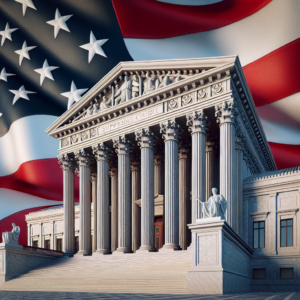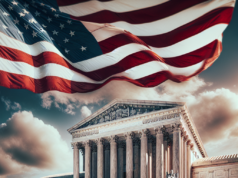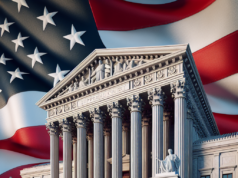
The enduring legacy of civil rights cases in America serves as a poignant reminder of the ongoing struggle for equality and justice. These landmark cases have not only shaped legal precedents but have also influenced societal norms and values. As we delve into the historical context, landmark decisions, and the role of the judiciary, we uncover the profound impact these cases have had on modern legislation and the continuing fight for civil rights. This article aims to explore the intricate tapestry of civil rights litigation and its implications for the future.
Understanding the Historical Context of Civil Rights Cases in America
The historical context of civil rights cases in America is rooted in a legacy of systemic racism and discrimination that dates back to the nation’s founding. From the era of slavery to the Jim Crow laws, African Americans and other marginalized groups have faced significant barriers to equality. The Civil Rights Movement of the 1950s and 1960s catalyzed a series of legal challenges aimed at dismantling these oppressive structures. Landmark legislation, such as the Civil Rights Act of 1964 and the Voting Rights Act of 1965, emerged from this tumultuous period, setting the stage for a new wave of civil rights litigation. Understanding this historical backdrop is crucial in recognizing the ongoing challenges faced by marginalized communities and the importance of legal advocacy in the pursuit of justice.
Landmark Civil Rights Cases That Shaped Legal Precedents and Society
Several landmark civil rights cases have played a pivotal role in shaping both legal precedents and societal attitudes towards race and equality. Brown v. Board of Education (1954) is perhaps the most significant, as it declared racial segregation in public schools unconstitutional, effectively overturning the “separate but equal” doctrine established in Plessy v. Ferguson (1896). Other notable cases include Loving v. Virginia (1967), which invalidated laws prohibiting interracial marriage, and Shelby County v. Holder (2013), which weakened the protections of the Voting Rights Act. Each of these cases not only altered the legal landscape but also fostered a cultural shift towards greater acceptance of diversity and inclusion, highlighting the judiciary’s role in advancing civil rights.
The Role of the Judiciary in Addressing Systemic Injustice Over Time
The judiciary has historically served as both a battleground and a beacon for civil rights advocacy. Courts have been tasked with interpreting the Constitution and federal laws, often stepping in to address systemic injustices when legislative bodies have failed to act. The role of the judiciary has evolved, with judges increasingly recognizing the importance of social justice in their rulings. However, the effectiveness of the judiciary in combating systemic injustice has been met with challenges, including judicial appointments influenced by political ideologies and the varying interpretations of constitutional rights. Despite these obstacles, the judiciary remains a critical player in the ongoing fight for civil rights, providing a forum for marginalized voices and a mechanism for accountability.
Analyzing the Impact of Civil Rights Cases on Modern Legislation
The impact of civil rights cases extends far beyond the courtroom, influencing modern legislation and public policy. Legal victories have often paved the way for comprehensive reforms aimed at promoting equality and protecting civil liberties. For instance, the principles established in cases like Roe v. Wade (1973) have informed contemporary discussions around reproductive rights, while Obergefell v. Hodges (2015) has significantly advanced LGBTQ+ rights. Moreover, civil rights litigation has inspired a new generation of lawmakers and activists to advocate for policies that address systemic inequalities, such as criminal justice reform and voting rights protection. The interplay between judicial decisions and legislative action underscores the importance of continued advocacy in the pursuit of a more just society.
The Continuing Struggle for Equality: Lessons from Past Injustices
Despite significant progress, the struggle for equality remains an ongoing challenge in America. Lessons from past injustices remind us that complacency can lead to regression. The resurgence of discriminatory practices, such as voter suppression and racial profiling, highlights the fragility of civil rights gains. Furthermore, contemporary movements like Black Lives Matter and the fight for immigrant rights draw parallels to historical struggles, emphasizing the need for solidarity and sustained activism. These movements serve as a reminder that the fight for justice is not merely a historical narrative but an active, evolving struggle that requires vigilance and commitment from all sectors of society.
Future Directions: Ensuring Justice Through Ongoing Advocacy and Reform
Looking ahead, ensuring justice and equality will require a multifaceted approach that includes ongoing advocacy, legislative reform, and community engagement. Activists and organizations must continue to challenge discriminatory laws and practices while fostering public awareness about civil rights issues. Additionally, there is a pressing need for comprehensive reforms in areas such as policing, education, and healthcare to address the systemic inequalities that persist in American society. Collaboration between grassroots movements, legal advocates, and policymakers will be essential in crafting solutions that promote equity and justice for all. As history has shown, the pursuit of civil rights is a collective endeavor that demands unwavering commitment and proactive engagement from all individuals and institutions.
The legacy of civil rights cases in America serves as both a testament to the resilience of marginalized communities and a call to action for future generations. As we reflect on the historical context, landmark decisions, and ongoing struggles for equality, it becomes clear that the fight for justice is far from over. By learning from past injustices and advocating for meaningful reform, we can work towards a society that upholds the principles of equality and justice for all. The journey towards civil rights is a continuous one, and it is imperative that we remain vigilant and engaged in this vital cause.































